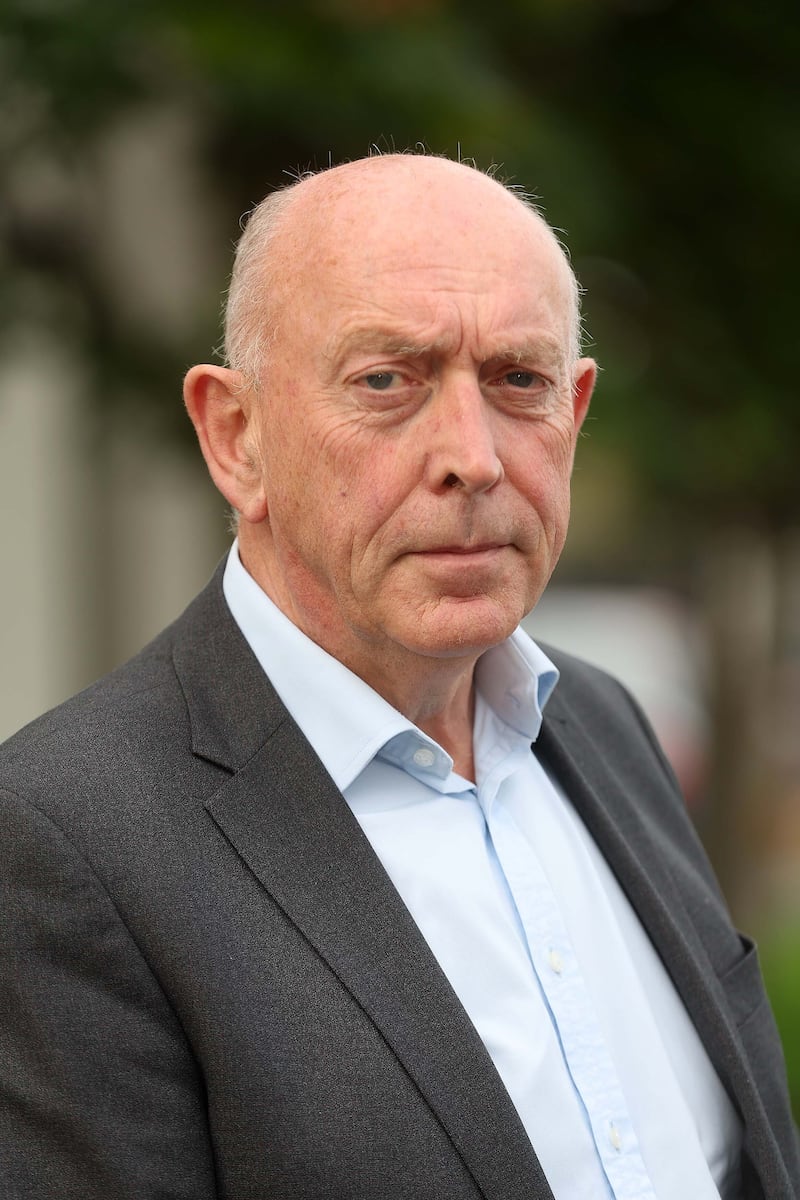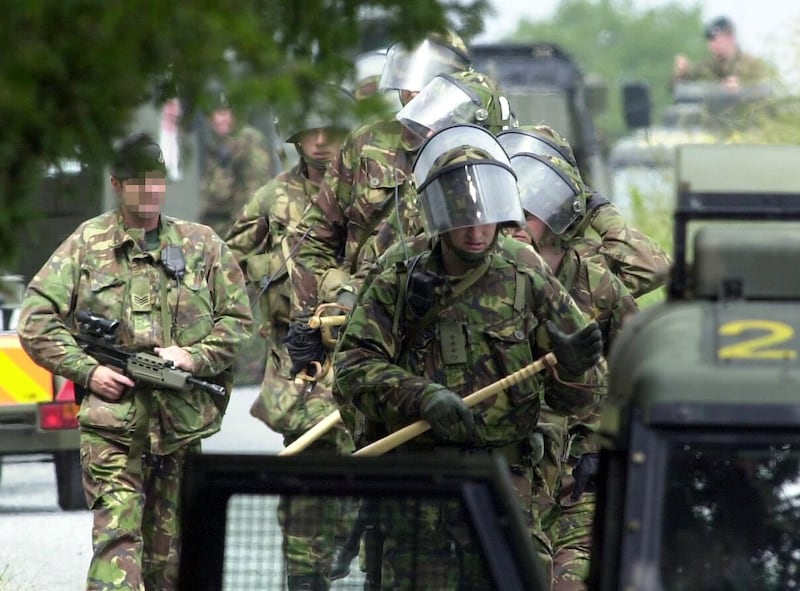The head of a controversial new Troubles investigation unit has accepted that the British government’s controversial Legacy Act was designed to protect former British soldiers and confirmed his view that the new legislation may have breached human rights laws.
Former police officer, Peter Sheridan was confirmed as the new Commissioner for Investigations at the Independent Commission for Reconciliation and Information Recovery (ICRIR) last month.
The body has been established as part of the British government’s disputed new legacy legislation.
The Northern Ireland Troubles (Legacy and Reconciliation) Act passed into law in September.
The legislation, which provides immunity in some circumstances and ends all inquests and civil cases, is opposed by many victims and relatives of those who died.
While the British government has insisted the new body is designed to deliver truth recovery and reconciliation, many believe it has been introduced to protect British soldiers from accountability for their part in the conflict.
Former Lord Chief Justice Sir Declan Morgan has been appointed as chief commissioner of the new body, while Mr Sheridan, who was previously the chief executive at Co-Operation Ireland, will head investigations.

During a special event with the Weatherhead Centre for international affairs at Harvard University last month, Mr Sheridan spoke about the legislation.
“The reason why there is so much opposition to it is the British government decided on this because they want to protect the veterans,” he said.
“So, there was a view in the British government, particularly in the Conservative Party, that there was a focus on soldiers who had been involved in the conflict in Northern Ireland and that’s where the police investigations were following the soldiers, so you were starting to see soldiers appearing in court for offences that happened 30 and 40 years ago.
“So, there was a big lobby group, pressure group, in the UK and Boris Johnson, when he was the Prime Minister, said they were going to bring in this legacy act and the focus was, everybody knew it even though the government didn’t say it that way, but everybody knew it was about the veterans, soldiers.
“And they also had an eye on prosecutions against soldiers, British soldiers in Iraq, Afghanistan and other places around the world.”
During the talk Mr Sheridan also confirmed that he previously took the view that the new legislation may not have complied with Article Two of the European Convention on Human Rights (ECHR), which protects the right to life.
“So, the act took about 18 months, which is unusual to go through parliament, it was back and forth because the opposition parties and all the Northern Ireland parties, the Irish government, were against it,” he said.

“I gave evidence to the Council of Europe, the ministers in the Council of Europe about, we felt that it breached Article Two under the human rights convention, about the need for a thorough investigation and so on.
“And so that’s where a lot of the opposition has been."
Daniel Holder, Director of the Committee on the Administration of Justice, said Mr Sheridan’s comments unpicks claims that the new legislation is designed to promote truth recovery and promote reconciliation.
“Government spin that this Legacy Act is about information recovery and reconciliation unravels fairly easily,” he said.
“At times UK ministers themselves have also been open about this."
It recently emerged that Mr Sheridan has facilitated a meeting between a senior IRA member and the widow of an RUC man killed by republicans in the 1970s.
He said during the recent talk that he was “convinced” as a result of the encounter.
He told how both the woman and former IRA man, whom he said was “senior in Sinn Féin”, hugged at the end of the meeting and that both received “an enormous amount of healing” as a result of the encounter.
He also said that the republican had told him that “he went to the senior leadership in Sinn Féin to say what he was going to do, and he was told he wasn’t to do it, that there was a corporate narrative and not an individual narrative around it”.
“But he went ahead and done it anyway,” Mr Sheridan added.
“That said to me…we are not going to prosecute our way out of this, the notion that there’ll be lots of prosecutions from the past is a fantasy,” he said.
“There may be a small number of them, but even then, I am not sure what we are going to achieve because, under the Good Friday Agreement, the most that anybody can do in jail is two years.”
Mr Sheridan said that under the Good Friday Agreement no examination was carried out on decommissioned weapons or investigations in relation to the disappeared, along with an agreement between the Irish and British to end extradition requests.
“So, all of those things have already been happening, this is now another iteration of it.”

